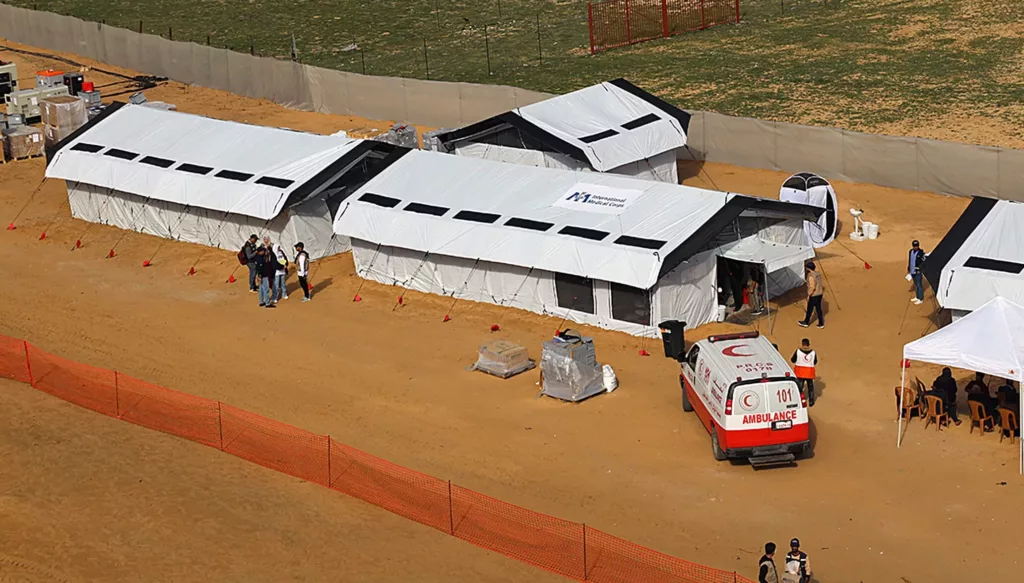International Medical Corps has deployed field hospitals throughout Gaza to help provide civilians with the healthcare they need, starting in January 2024 the south and extending through central and north Gaza. Our activities are being carried out in close coordination with US, Egyptian, Israeli and Red Cross authorities.
We initially deployed a large field hospital in southern Gaza in early January 2024. This hospital initially had 160 beds for patients with a wide range of needs, and offered an emergency room, a Level 1 intensive-care unit, operating theatres, a fully stocked pharmacy, X-ray and ultrasound machines, a laboratory and blood-transfusion services. It provided care 24/7 and served more than 1,000 civilians every day.
We deployed a second field hospital in Deir Al Balah, in central Gaza, in early May of that year. Later, in response to needs and security concerns, we shifted operations from the southern-Gaza facility and opened a second facility in Al-Zawaida. In November 2025 we deployed a third field hospital, in northern Gaza. Together, the facilities now offer more than 400 beds and serve as many as 3,000 civilians every day.
In all of our facilities, we provide a complete range of lifesaving services, alongside integrated nutrition services, child protection and vaccination services, mental health care, services addressing violence against women and girls, and facilities and services related to water, sanitation and hygiene. We continue to work with local authorities to explore the need for additional facilities and support in communities throughout Gaza.
Our multi-pronged, integrated approach focuses on immediate relief to save lives, alleviate suffering and promote well-being, while we contribute to ensuring longer-term resilience through training. We are:
- increasing access to and availability of quality lifesaving medical and mental health services;
- improving access to and availability of quality nutrition and vaccination services;
- reducing the risks and mitigating the consequences of violence against women and girls, while addressing child-protection concerns; and
- improving access to safe drinking water and ensuring proper hygiene practices.
International Medical Corps also coordinates with functioning facilities in Gaza to support patient referrals and ensure continuity of care wherever possible. And to further extend health access and help overcome barriers to care for Gaza’s most vulnerable, International Medical Corps provides mobile services throughout the region, working with trusted partners.






















